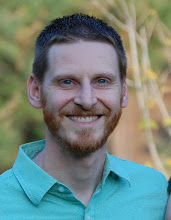Today Muslims in North America are celebrating “Eid ul-Fitr,” the “Holiday of the Breaking of the Fast” that comes at the end of the month of Ramadan. Because I teach English as a second language and have a lot of Muslim students, I’ve been very much aware of their daytime fasting that has been going on for the last four weeks. During Ramadan, Muslims are required to purify themselves through abstaining from all food and drink, as well as sex, cigarettes, etc., from dawn until dark every day. Then the coming of Eid means three days of feasting and celebration—the biggest holiday of the year for them. This cycle of fasting and feasting was put in place during the life of Muhammad and commemorates his receiving of the Qur’an.
Although Islamic traditions like these may seem strange to us as modern Western Christians, the fast of Ramadan and feast of Eid may have been influenced by Christian practices that go back even further. A forty-day partial fast for Lent, culminating in the celebration of Easter, was observed at least from the fourth century A.D. Writing in the second century, Irenaeus of Lyons describes some different Christian customs for fasting prior to Easter, and then comments, “Such variation in the observance did not originate in our own day, but very much earlier, in the time of our forefathers.” In other words, there were some differences in how Christians fasted before Easter, but the observance itself was already ancient.
It is very clear from the Bible and experience that the Lord has built recurring cycles into all of life. The Flood in Noah’s time brought a great disruption, but God’s promise afterward is, “While the earth remains, seedtime and harvest, cold and heat, winter and summer, and day and night shall not cease” (Genesis 8:22). What is true in “nature” is also true in human life: we are awake during the day and sleep at night, we alternate work and other activities with meals and rest, and the arc of our life progresses from birth to youth and maturity, and then the declining years and finally physical death.
These cycles also show up in the life of the Church, as they should. In the Old Testament God gave His people a yearly pattern of holidays, with the great fast occurring at the Day of Atonement and the greatest feast coming at Passover as the Israelites celebrated their deliverance from Egypt. Weekly sabbaths were lesser holidays, but just as important in their own right. Every week the Israelites had a day to rest and worship the Lord as they remembered His completion of the work of creation. Since the time of Christ and the apostles, the Church has developed new holidays that commemorate similar things in the light of the Incarnation of the Son of God. Our weekly day of joy is no longer the seventh-day sabbath, but the first day of week, on which Jesus Christ conquered death and brought life and immortality to light (2 Timothy 1:10). And the Church has traditionally celebrated new annual holidays in place of the great days of the Old-Covenant Jews. The inter-Testamental festival of light, Hanukkah, was replaced by the new winter festival of Christmas to celebrate Messiah’s birth. And the high holy day of Passover has become Easter Sunday, the celebration of the Resurrection of the Lamb which is the greatest of all days of the year.
Although the Bible does not require Christians to observe any kind of fast before Easter or feast on that special Sunday, we have far greater reasons for doing so than the Muslims have for their Ramadan and their Eid. If Muslims fear offending God through their sins, we have far greater reason to fear if we rebel against the God who is not only far away but also very near to us in the Incarnate Christ and in His Spirit. If they grieve and purify themselves during the holy month of the revelation of the Qur’an, we ought to grieve far more because we know our sins required the death of the Son of God, the Perfect Man. And most of all, if they rejoice and feast and congratulate each other at the end of the fast of Ramadan, we ought to have a joy that knows no bounds as we come to our annual bright festival of Easter: the Lord reclaiming Life and re-making the world by His glorious resurrection! They believe they have received a book from God; we know that we have received God Himself. Jesus has come, and He is making all things new.
Wednesday, October 1, 2008
A tale of two holidays
Posted by
Jeff Moss
at
12:14 PM
![]()
Subscribe to:
Post Comments (Atom)

2 comments:
I don't follow; does this mean that they don't eat anything when there's light out, or that they don't eat anything at all for a few days?
During the month of Ramadan, Muslims don't eat or drink at all during daylight hours. Generally they have breakfast before sunrise and a big dinner after sunset.
During the holiday of Eid, after the end of Ramadan, they have three days of celebration and feasting.
Post a Comment